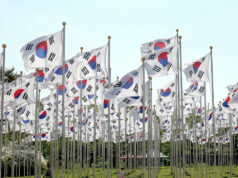International trade in a post-Trump and COVID-19 world
I am not sure if it’s an actual Clausewitz principle but Ian Fleming once wrote of James Bond, methodically preparing en route to a dangerous mission (in Moonraker), “had achieved Clausewitz’s first principle. He had made his base secure.” In any event, it’s not a bad principle to consider for international trade in these uncertain times.
With GDP contracting 8.5% and even the most optimistic of economists, UA&P professor Bernie Villegas, stating that the Philippines should expect to have a mere 4% growth this year, the times really provide an opportunity for thoughtful reconsideration. Add to that recent news of nearly half a million workers laid off in 2020’s final three months, resulting in a Philippine unemployment rate of 8.7%, equivalent to 3.8 million jobless Filipinos.
Philippine trade policy seems (generally) to emphasize indeed “securing our base.” Trade and Industry Undersecretary Perry Rodolfo, in his 2018 Manufacturing Summit presentation, stated that the “best Trade Strategy is a robust Industrialization Policy” and that the “most effective Industrialization policy is one that deepens and expands local value-chain.” And finally, the Philippines’ “biggest incentive, is our growing domestic market (size and income) — whose requirements are largely being met by imports.”
There is really nothing to quibble about the foregoing. The Philippines is currently suffering from a trade deficit of $1.73 billion (as of November 2020), with the United States maintaining its place as our top export destination ($956.80 million or 16.5% of total exports). By economic bloc, APEC topped the list with $4.95 billion (85.5%), then East Asia with $2.93 billion (50.6%), finally ASEAN at $930.30 million (16.1%).
However, it’s the massive importations from China ($2.02 billion or 26.8% of import share compared to our exports to it of $923.65 million, amounting to a negative difference of $1.096 billion) that is fueling the deficit. For context, the Philippines enjoys a surplus of $138.6 million with our second biggest imports source, Japan (with $734.35 million or 9.8%).
Which leads us to the Regional Comprehensive Economic Partnership (RCEP), which Department of Trade and Industry Secretary Ramon Lopez claims “offers wider market opportunities for our exporters and service providers. RCEP countries account for more than 50% of our export market. RCEP has improved levels of market access among each other, but still respects exclusion list for sensitive products mostly for agriculture products.”
Yet, as pointed out previously (“Time for the Senate to look into RCEP,” Nov. 19, 2020): “The RCEP membership itself is something needing examination. Set aside the fact that our closest security ally, the US, is excluded from the agreement, the Philippines already has free trade agreements with all of the RCEP countries: Indonesia, Malaysia, Singapore, Thailand, Brunei, Burma, Cambodia, Laos, Vietnam, Australia, China, Japan, South Korea, and New Zealand. What the RCEP brings is that the other FTA’s don’t needs further elucidation.
“Right there should also raise concerns on what this ‘noodle bowl’ of trade agreements has on our overworked bureaucracy. The depth and complexity of RCEP leads to further questions on Philippine companies’ capacity for utilization of benefits. After all, we’re still trying to attain the rewards promised by AFTA, JPEPA, and others.”
A clue as to a way forward can be seen from how the international trade environment will react to the recent exit of US President Donald Trump. Bruegel Senior Fellow Jean Pisani-Ferry (“Trump’s International Economic Legacy,” Aug. 27, 2020) points out that “Trump will be remembered for his trade initiatives” and that “three key goals now stand out: reshoring of manufacturing, an overhaul of the World Trade Organization (WTO) and economic decoupling from China. Each objective is likely to outlast Trump’s tenure, at least in part.”
The first is interesting as “reshoring as a policy objective has gained new life after the pandemic exposed the vulnerability entailed by depending exclusively on global sourcing.” This should be contemplated in line with our own policy to buttress industrialization.
The second: deconstructing the WTO and strengthening its rules-based system, including its dispute settlement system, particularly the Appellate Body, should be supported by the Philippines, with the long view of moving the world away from regional agreements and back to the multilateral trading system.
Which leads us to relations with China: “Although bilateral tensions were apparent before Trump’s election in 2016, nobody spoke of a ‘decoupling’ of two countries that had become tightly integrated economically and financially. Four years later, decoupling has begun on several fronts, from technology to trade and investment. Nowadays, US Republicans and Democrats alike view bilateral economic ties through a geopolitical lens.”
This is crucial because the Philippines need to conduct its foreign relations, particularly trade, aligned with its principles and values, including defense of its territorial integrity and respect for human rights. An independent foreign policy cannot mean amicable accommodation to everyone, seemingly the thinking back in 2019, even at the expense of national interest. Pisani-Ferry is correct: at least with regard to international trade, “there won’t be a return to the status quo.”
Jemy Gatdula is a Senior Fellow of the Philippine Council for Foreign Relations and a Philippine Judicial Academy law lecturer for constitutional philosophy and jurisprudence.
https://www.facebook.com/jigatdula/
Twitter @jemygatdula



